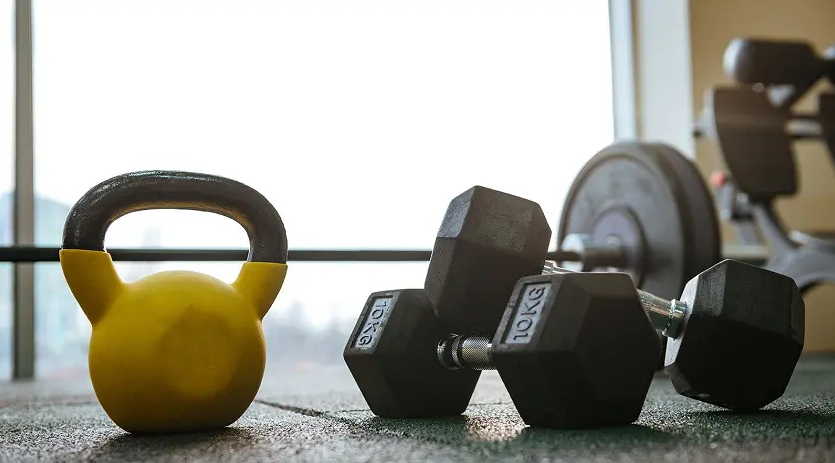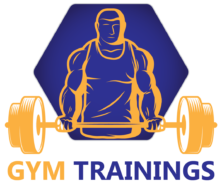Either for our own reasons (due to time or certain eventualities) or others (such as the pandemic we are going through) there are times that we will not be able to train in our gym. How can we do then not to lose the muscle that we had so hard to gain?

First of all, let’s not panic. “ WHAT HAPPENS IF I STOP TRAINING FOR A FEW WEEKS? “ Do not lose muscle if you take a week off from training.
However, after a three-week break, you may start to lose 5-10% of your strength mainly due to loss of neuronal adaptations.
After three weeks it is possible to lose muscle mass, but the good thing is that there are ways to mitigate the loss.
Now, first of all it seems to me that it is better to start talking about what we could define as free time, whether or not it is sought. Based on this, then we will see how we can avoid the loss of muscle and strength if we cannot go to the gym.
FREE TIME: PLANNED AND UNPLANNED
If we do not train with competitive goals, and we do it to be and feel good, there are no big problems if we stop training for a period of time as long as we do not destroy our diet.
Now, there are three situations in which a serious weightlifter would take time off from training:
- A planned rest with an active rest phase, to cement the previous phases of development.
- A short-planned break (for vacation or travel).
- An unplanned period of rest (illness or injury).
The first point we are not going to deal with in this article as it refers to a type of planned rest, which is necessary and part of any training plan.
However, the other two points are not planned within the routine and forces us to put aside the training in the gym for a period of time.
A SHORT AND PLANNED PAUSE
Sometimes we have to interrupt our training for a few weeks because we are going on vacation or for work reasons. And in these cases, we are all afraid of losing strength and muscle while staying out of training.
But the truth is, unless we are tied to a hospital bed, we won’t lose muscle mass if we take a week off from training. We may start to feel smaller. But it is not because we are losing muscle mass.
It is because muscle tone is slightly decreasing due to the nervous system being a little less “on”. In addition, the inflammation of the muscles is eliminated, which is what makes the muscles look swollen, larger and tighter.
Yes, the muscles may feel “looser” and less swollen, because it is easy to make the mistake of believing that they are smaller, but nothing could be further from the truth.
Yes, it is possible that you lose a small amount of muscle mass after two weeks without training, but even in those two weeks it is not enough to make a big difference.
Any muscle lost is quickly recovered when you return to training after two to three weeks.
Now when it comes to strength, the losses can be a bit faster, but it’s simply because you lose some neural efficiency. If you take two weeks off, you may lose a significant amount of neural efficiency, so your strength might decrease a bit.
But don’t panic about this either, as you will return to your previous levels within 2 weeks of resuming training.
HOW TO AVOID THIS SITUATION IN AN UNPLANNED PERIOD OF REST OF A FEW WEEKS?
If you have an upcoming break planned, increase your training volume by while maintaining the intensity. This will create a state of accumulated fatigue and during the period of inactivity the body will spend more time recovering and less time de-training.
If you are going to take a week off, increase the volume one week before, if you are going to take two weeks increase it two weeks before.
HOW TO AVOID LOSS OF MUSCLE AND STRENGTH IF YOU ARE GOING TO STOP TRAINING FOR MORE THAN 3 WEEKS?
If you are going to stop training for 4 weeks or more, you will inevitably lose a bit of mass and strength, to reduce the speed at which this happens, you should set up a bodyweight training session.
You could include sessions of squats, lunges, abdominals and push-ups, in this way you could do them at some free time and in this way, you would slow down the speed with which you lose mass and muscle, so that the day you return to the gym you will return faster to your previous level.
AN UNPLANNED BREAK
It could be an illness, injury, or an unexpected event that makes it impossible for you to access the gym. If this is the situation many of us wonder… how much muscle and strength am I going to lose?
The truth is that this is something very individual. It depends on your current condition, the longer it took you to reach your current level.
If you’ve been doing heavy weights for over 10 years and have built a very stable base of strength and size, it will stay with you much longer. But if you have built your physique in the last year, the gains obtained will be lost much more quickly, and in this case your effort should be greater.
HOW TO AVOID THE LOSS OF MUSCLE AND STRENGTH IF YOU ARE GOING TO STOP TRAINING DURING AN UNPLANNED PERIOD?
Well, to avoid muscle loss it will depend on why we have stopped training:
IF IT IS BY INJURY: there is little we can do, at most we can train the areas outside the injury area.
That is, if we have injured a calf, we should not train legs, but if we could do some arm, shoulder or chest exercises, even certain back exercises.
As long as we do not continue to affect the area of injury and with the prior authorization of our doctor, we could apply some exercises that do not intervene in any way the affected muscle.
IF IT IS DUE TO DISEASE: In this case, again, it depends on the type of disease, if it is an infectious disease of bacterial or viral origin, I advise you not to do any type of training until you are completely cured to affect your recovery and reduce any type of contagion risk.
Anyway, always evaluate the situation with your doctor, depending on the disease the variables are endless, you may not be able to perform any activity, or you may only be able to do some active rest training at home. So, I repeat it again, discuss it with your doctor.
IF IT IS DUE TO EXTERNAL ISSUES, SUCH AS FAMILY, WORK OR EVEN IN THE CURRENT STATE OF PANDEMIC WHICH WE ARE AFFECTED:
Well, in these cases, the option you have in order not to stop losing those muscles and strength that you have had so hard to achieve, is to train at home. And that depending on your level, it can be totally useful, you can even continue to develop if your level is still low.
Or, if your level is high, you should take it as a phase of prolonged active rest where you must find certain strategies so that the rate of loss is as low as possible:
You can implement a GYM at home to focus on weight training, or you can get some accessories like weights and weights to focus on body training. They are two valid strategies.
And the fact that you can continue with your development, maintain the gains, or avoid the losses, will depend on how much you can emulate the training in the gym at home, both in volume and intensity.
HOW QUICKLY WILL I RECOVER MY PREVIOUS STRENGTH AND MUSCLE LEVEL?
As we’ve seen so far, this is highly variable, but the reality is that it will take you less time to regain lost muscle than it took to build it in the first place.
While there is no set rule of thumb about how quickly we will regain lost muscle, think in terms of a 1-to-1 time frame meaning it will take roughly the same time to rebuild lost muscle as the time we spend detraining.
If we were out of training for 6 weeks, we could return to the previous level of development and performance within 6 weeks after resuming intense training.
TIPS TO AVOID MUSCLE LOSS WHEN WE DO NOT TRAIN IN THE GYM FOR A LONG PERIOD OF TIME
One big mistake: when people have to stop training, they stop doing all the other things they were doing to maximize their gains while training.
They stop eating a diet that promotes muscle development and often even begin to eat more and more poorly nutritious foods; they go to bed later, sleep less, and become less physically active.
The logic is that all these healthy things we do outside of the gym are to improve our training, but if we are not training, what is the point? We will all start to do things well again when we go back to the gym, right?
But if you behave this way you will lose muscle even faster. And you’ll probably gain some fat in the process, making it harder to get back to your old shape.
The things that help you gain more muscle and lose weight while you train are the same things that will help you avoid muscle loss and fat development when you are forced to stop training.
Keep doing all the good things that you were doing when you were training in the gym.
If possible, try to be even more focused on the things you can still do to improve your body: follow a more robust nutrition plan, get plenty of rest, and get more physical activity at home.
